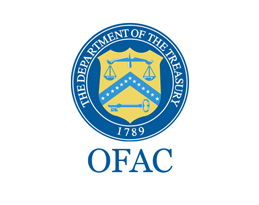Cases underscore possible heightened enforcement against foreign financial institutions

Partner
The U.S. Department of the Treasury’s Office of Foreign Assets Control (OFAC) has issued two penalties against non-U.S. financial institutions this past week. The agency’s December 28, 2020 settlement with Saudi Arabia-based National Commercial Bank (NCB) and its January 4, 2021 settlement with France-based Union de Banques Arabes et Françaises (UBAF) arguably demonstrate a more detailed evaluation by OFAC of compliance procedures and activities of foreign financial institutions processing U.S. dollar (USD) payments. Additionally, they may potentially signal more enforcement actions against foreign financial institutions going forward.
Background
NCB allegedly processed 13 USD transactions totaling nearly $5,918,560 to or through the United States, either benefiting a counterparty in Sudan or Syria, or involved goods originating in or transiting through Sudan or Syria. None of the Sudanese or Syrian parties were NCB customers. NCB voluntarily self-disclosed to OFAC the eight Syria-related apparent violations but did not disclose the five Sudan-related apparent violations. The base civil penalty amount against NCB was $1,814,854, but the bank settled with OFAC for $653,347, almost a third of the base penalty amount.

Separately, UBAF was accused of engaging in 127 apparent violations of the Syrian Sanctions Regulations totaling $2,079,339,943.52. UBAF allegedly operated USD accounts on behalf of sanctioned Syrian financial institutions and indirectly conducted business in U.S. dollars on behalf of these institutions, in part through the U.S. financial system. The statutory maximum civil penalty applicable was $4,158,679,887.04. UBAF voluntarily self-disclosed all the alleged violations. The base civil monetary amount applicable in this matter was $15,875,000, but UBAF’s ultimate settlement with OFAC was for $8,527,500, approximately almost one-half of the base penalty amount and 99% less than the maximum penalty amount.
Impact
These two cases differ somewhat from typical fact patterns involving OFAC enforcement of foreign financial institutions as the issues in both involved more oversights and omissions than circumvention. Second, although not infrequent, enforcement actions against foreign financial institutions have been less frequent compared to previous years. In 2019, OFAC entered into three settlements with non-U.S. financial institutions involving USD transactions with sanctioned entities. In 2020, there were none. The announcement of two settlements involving non-U.S. financial institutions in one week and the nature of the facts arguably demonstrate that OFAC’s enforcement approach towards non-U.S. financial institutions may be progressing to more rigorous expectations.
While the outgoing Trump Administration made substantial use of U.S. sanctions as a tool of foreign policy, OFAC penalties against financial institutions waned compared to the Obama era where such enforcement actions were a main priority. With the imminent transition to a Biden Administration, we can expect that administration and enforcement of sanctions may be reset to a more traditional approach in some ways reminiscent of those of the Obama and Bush administrations. That said, the breadth and scope of U.S. sanctions laws and regulations and the adoption of vigilant, risk-based compliance have progressed significantly in the past four years. As such, the new administration will be dealing with a different political and economic landscape from its predecessors and its handling of sanctions enforcement arguably will not entirely resemble that of previous presidencies.
Key Takeaways
The lesson to be learned from the aforementioned case studies is that implementing a compliance program is not enough and does not completely cover you from liability. Both NCB and UBAF had compliance programs implemented and both financial institutions, in response to the apparent violations, enhanced their compliance programs to address past weaknesses. Most notably, compliance programs are not “one-size fits all,” and need to be tailored to a company’s specific needs and operations. It is therefore extremely important for companies to implement compliance programs that address the specific challenges and risks that they face and then to continuously enhance these programs as sanctions and the company change. In addition to a compliance program, companies need to maintain and update Know Your Customer (KYC) protocols, as well as periodically audit and evaluate their vetting process.
Additionally, non-U.S. financial institutions transacting in USD should not limit their due diligence to non-U.S. regulations and should ensure that their transactions are in compliance with applicable U.S. laws and regulations if they pass through the U.S. financial system. These links to the U.S. financial institution may not be readily apparent and may require more diligence and vetting. Financial institutions although operating outside of U.S. jurisdiction should evaluate their offshore transactions in USD that could trigger U.S. sanctions.
These cases also underscore the positive impact voluntary self-disclosures can be in OFAC enforcement actions. If a violation were to occur, as seen in the aforementioned cases, submitting a voluntary self-disclosure to OFAC can mitigate the penalties by a substantial amount. Taking significant steps and investing a serious amount of resources into improving and enhancing your compliance program is also a big factor that OFAC takes into consideration when determining the penalty.
Financial Institutions should be aware, vigilant, and responsive towards the risks that they face and ensure that their compliance programs fit their specific needs. Conducting sufficient due diligence, having a robust and updated compliance program, and determining whether your transactions touch the U.S. financial system can help to avoid violations.
For more information, contact Farhad Alavi at falavi@akrivislaw.com or +1.202.686.4859.
Special thanks to Jaime Rosenberg on this Client Alert.
This Client Alert is intended solely for informational purposes and should in no way be construed as legal advice. If you have any questions or are unclear on any of the subject matters addressed or discussed on this Client Alert, please consult a licensed legal professional.
